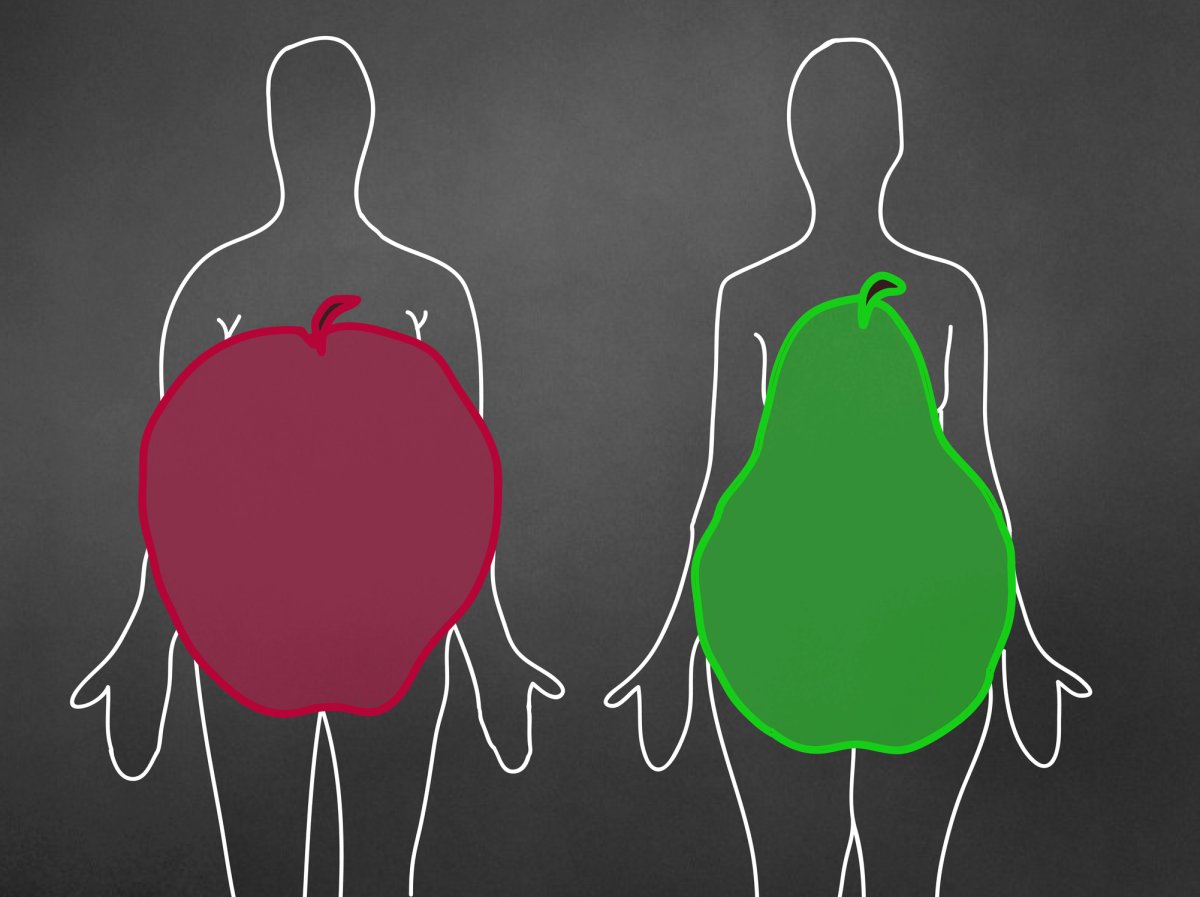Your body shape could be putting you at a higher risk of colorectal cancer, scientists have warned.
Colorectal cancer is the second-leading cause of cancer deaths in the United States, according to the American Cancer Society, with roughly 150,000 new cases projected for 2024. Overall, the lifetime risk for developing this type of cancer is roughly 1 in 23 for men and 1 in 25 for women, although scientists have identified several factors that may increase our chances of developing the disease.
Many lifestyle-related factors have been linked to colorectal cancer, including diets rich in red and processed meat, smoking, heavy drinking and obesity. But it turns out that the way our body tends to put on weight may also have an impact.
Read more: Compare Top Health Savings Accounts
You may have come across "apple" and "pear" shaped body types—widely used terms to describe the distribution of fat around the body. There are of course other body types too, such as the hourglass, inverted triangle and the ruler. Each of these is fairly self-explanatory, but which category you fit into depends on your genetics, lifestyle, sex and age.

Unfortunately, numerous studies have found that the apple body shape in particular—that is, one with a larger waist and narrower hips—may increase our risk of various health issues, including heart disease and type 2 diabetes. These associations persist even among those with a healthy BMI.
Now, new research suggests that waist-heavy fat distribution may increase our risk of colorectal cancer, too.
"Body shape is mainly determined by a combination of environmental and genetic factors," Heinz Freisling, an epidemiologist at the International Agency for Research on Cancer, told Newsweek.
"Other determinants of body type can be hormonal, metabolic, or other yet unknown factors. Although our genetic predisposition to a specific body type cannot be changed, we can act on environmental factors," he said.
"For example, we know that tobacco smoking favors fat accumulation around the waist. Being physically active, less sedentary, and eating a balanced diet help maintain a healthy weight."
In a study published in the journal Science Advances, Freisling and colleagues found that individuals who were tall with a "centrally obese" body type—i.e. a tall apple shape—were more likely to develop colorectal cancers. General obesity was also associated with an increased risk.
The study analyzed data from 329,828 participants form the U.K. Biobank—a biomedical database investigating the respective contributions of genetics and environment to the development of various diseases—to investigate this relationship between body type and cancer risk.
Next, the team combed through genetic data from 460,198 participants to determine whether any specific genetic variants were associated with either of these body types.
Overall, their findings suggest that generally obese and centrally obese, apple shaped individuals are at a higher risk of developing colorectal cancer, although the genetic mechanisms that underpin these body types and potential risk factors likely have different biochemical origins.
"One of the intriguing findings of our study is that these body types seem to affect health of the digestive system, or specifically the colorectum, through systemic rather than local processes," Freisling said.
"We found that more of a generally obese body shape was associated with genes that were overexpressed in certain brain regions, while more of a tall, centrally obese body shape was mainly associated with genes that were overexpressed in [fat] tissue. Plainly, this suggests that digestive health can at least partly originate in the brain and [fat] tissue."
Of course, these results are still observational and human bodies come in all shapes and sizes. But the study is an important step towards recognizing the importance of genetic diversity and body type when considering cancer risk analysis.
Is there a health problem that's worrying you? Let us know via health@newsweek.com. We can ask experts for advice, and your story could be featured on Newsweek.
Uncommon Knowledge
Newsweek is committed to challenging conventional wisdom and finding connections in the search for common ground.
Newsweek is committed to challenging conventional wisdom and finding connections in the search for common ground.
About the writer
Pandora Dewan is a Senior Science Reporter at Newsweek based in London, UK. Her focus is reporting on science, health ... Read more
To read how Newsweek uses AI as a newsroom tool, Click here.








